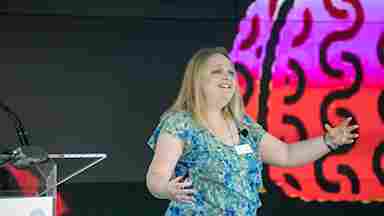
Q&A With Dr. Lori Cook
Center for BrainHealth
Share this article

Lori Cook, PhD, CCC-SLP
Director of Clinical Research Head of Research, The BrainHealth Project Adjunct Assistant Professor, School of Behavioral and Brain Sciences
Related Information

A SMART Approach for Enhancing Higher-Order Cognitive Functioning Following Sports and Recreation-Related Mild TBI in Youth Using Telepractice
Findings from this study demonstrate SMART™ tactics can remediate higher-order cognitive processes following mild traumatic brain injury and help prevent negative, long-lasting impacts.